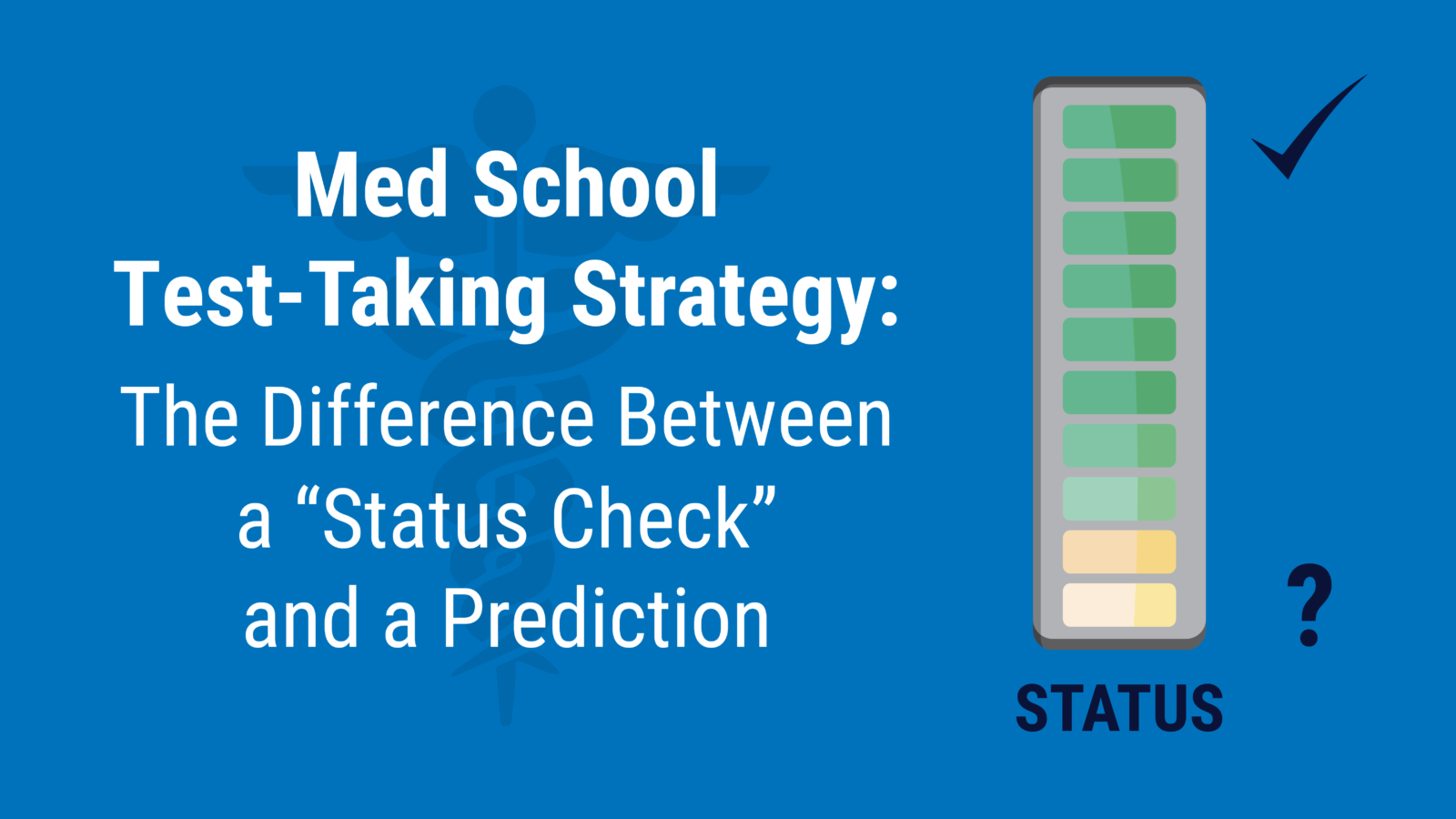
By David LaSalle, STATMed Learning Instructor
Use this strategy for med school tests and board-style exams
One of the steps of the STATMed Test-taking process (the one I think of like the unsung hero of our method) is the Status Check. This means, quite simply, that AFTER you read the passage neutrally and AFTER you identify your most valuable clues, you get to ask yourself what you think might be going on in the question. You may have a specific diagnosis in mind or something more general, or you may be able to rule one or two things out. One of the most potentially confusing things we tell testers, though, is that they are allowed to anticipate but not to predict at this point. So what does that mean?
First, if I read my prompt and passage well and gather good clues, and it all points to a specific diagnosis, it’s essential to recognize that that’s just fine! I’m allowed to have a specific idea of what is going on. Maybe all of my clues are pointing me toward aortic stenosis. I don’t have to pretend that I don’t see this or block out aortic stenosis from my brain. But here’s what I should do: I should remember that the answer being aortic stenosis is a hypothesis and not an established fact. I could well be correct, but I could well be wrong. My next job will be to vet my answers individually, not just against my Status Check (my hypothesis), but against the prompt and clues from the passage. Those I can rely on are my givens.
So to boil this down into its most actionable form, tack this simple clause onto the end of your hypothesis: a bad status check would be “This is aortic stenosis.” A GOOD status check would be, “Looks like aortic stenosis, BUT I WILL KEEP AN OPEN MIND.” It’s just that simple. Each answer gets its fair day in court, weighed against the evidence of the passage, and this is how I ensure that mistakes made early on in my process don’t continue to haunt me as I work my answer set.
Struggling with medical school tests and board exams? The STATMed’s Boards Test-Taking Workshop can help you identify what you’ve been doing wrong — and how to fix it.
Looking for more strategies specifically for bad test-takers in med school or a related discipline? Check out our blog and podcast!
